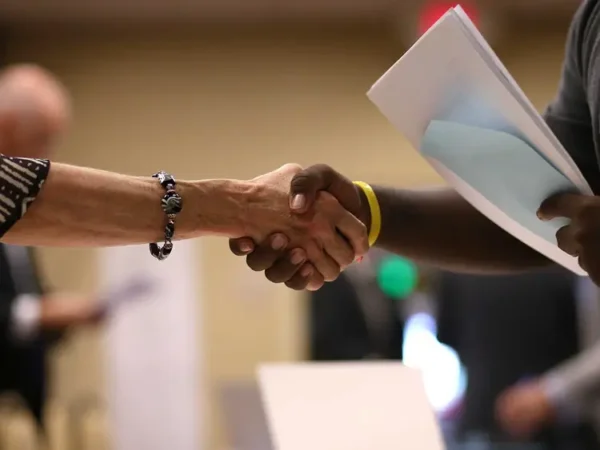
How to Navigate High-Stakes Negotiations with Confidence
Develop confidence as a negotiator

If your role includes negotiating you’ll know how stressful this can be. Whether you are in HR negotiating an executive salary, or part of a team negotiating an important commercial contract there is always a fine line between celebrating success and commiserating when things don’t go your way.
Let me share some strategies to help you build your confidence in this complex area and achieve your goals when negotiating.
Wide Ranging Preparation
Good preparation helps you to control the negotiation environment. It includes researching the people you will be negotiating with, understanding their business background, past negotiation behaviour, and the wider market situation.
Negotiation simulations are a valuable tool in preparation, offering many benefits that boost skills and mental readiness, such as:
- Skill Development and Refinement: Simulations provide a safe space to practice communication, strategic thinking, problem-solving, and adapting tactics based on feedback. Participants can try different negotiation techniques without real-world consequences, letting them hone their skills before they face critical situations, and get use to the pressure.
- Trying different strategies: to see what works and what doesn’t, including various ways to persuade, different concessions, or timing of offers.
- Better Decision-making: Simulations challenge participants to make quick and effective decisions, reflecting the time-sensitive nature of many high-stakes negotiations. Regular practice under such conditions can sharpen a negotiator’s ability to quickly process information and make informed decisions under pressure.
- Building Confidence: Successfully managing a simulated negotiation can greatly boost a negotiator’s confidence. This confidence is essential when dealing with actual, high-stakes negotiations as it affects how present you are and present yourself, how persuasive you can be, and your ability to guide negotiations towards desired outcomes.
- Team Dynamics and Roles: When negotiations involve teams, simulations provide a unique opportunity to define roles, test how the team works together, and improve coordination among members. Understanding how to use each member’s strengths in a simulated environment can improve the team’s effectiveness in real negotiations.
- Cultural and Ethical Considerations: Simulations can include elements of cultural and ethical diversity to prepare negotiators for dealing with people from different backgrounds and norms. This preparation is crucial in global negotiations to avoid cultural misunderstandings and build respectful, productive relationships.
As Daniel Shapiro, a negotiation expert from Harvard, says, “Negotiation is about preparation. The more you know, the more options you have during the discussion.”
The Art of Expression during Negotiations
In order to get the most from both the simulation and the actual negotiation, the following points are important to consider:
- Defining clear, achievable goals for each phase of a negotiation sets a framework for success, using SMART criteria—Specific, Measurable, Achievable, Relevant, and Timely—helps ensure these objectives guide your tactics. In addition, understanding your position, strength and having a fallback position, gives you leverage
- The words you choose, your tone of voice, and your body language are key in negotiations. Chris Voss, a former FBI hostage negotiator and negotiation expert, notes, “It’s not just what you say, it’s how you say it. The right tone can open doors that words alone cannot.”
- Active listening involves fully focusing, understanding, responding to, and remembering what the other person says. It helps information gathering, builds trust and rapport. If you hear the other party uses formal language, mirroring this style can make them feel more comfortable.
- Asking strategic questions can reveal the other party’s priorities and limitations, shifting the discussion from demands to mutual benefits. For example, asking “What are your top three priorities in this negotiation?” helps you understand what the other party cares about most. Asking “What factors are preventing you from agreeing to this proposal?” can show you what their limitations are.
- Stressful situations require high focus and the ability to think clearly under pressure, and avoiding emotions clouding your judgement. Preparation, practice, and breathing techniques can reduce the impact of stress. This allows negotiators to regain their composure and steer the discussion back towards productive outcomes, creating an environment where everyone feels heard, respected, and engaged.
Overcoming Setbacks and Clinching the Deal
A setback is a chance to learn. Analysing what went wrong and planning for future interactions ensures continuous improvement. Knowing when to compromise—and what to offer—can speed up agreements without giving up key interests. Effective negotiators balance firmness with flexibility.
Ensuring that everyone understands and agrees to the terms is crucial for a lasting agreement. A clear, concise, and thorough explanation of the terms reduces the chance of future disputes.
Post-negotiation analysis is invaluable for continuous improvement. It identifies what tactics worked and what areas need improvement and informs future strategies.
Negotiation is a vital part of business so develop your skills and build your confidence in this area. That way you will enjoy career success and help your organisation to succeed.
ABOUT THE AUTHOR:

Angela Afieghe is a member of Toastmasters International, a not-for-profit organisation that has provided communication and leadership skills since 1924 through a worldwide network of clubs. There are more than 400 clubs and 10,000 members in the UK and Ireland. Members follow a structured educational programme to gain skills and confidence in public and impromptu speaking, chairing meetings and time management. To find your nearest club, visit www.toastmasters.org














































